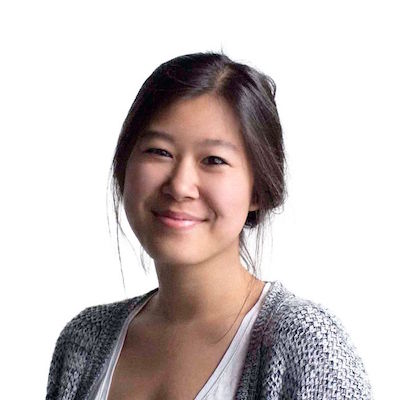By Katie Zhu
Nieman Lab, December 2016 —
“Despite hiring more minority writers, the power structure in legacy news organizations is still largely controlled by the same types of people.”

Katie Zhu
2017 will be the year we elevate minorities in news. I’m not predicting this because I’m an optimist (quite the opposite), but because it has to happen, for all of our sakes.
Let’s make 2017 the year we finally speak up for what we know to be true and stand up for the things we believe in. We need the right people in charge to ensure this is the case.
We must elevate more minorities in newsrooms to positions of power and decision making.
This year, we saw more underrepresented groups being hired as writers, making media, and finding their voice. We’ve seen and felt their presence other platforms — black teens made culture on Vine, black women fueled worldwide movements like Black Lives Matter, and #BlackTwitter showed up making memes, vernacular, and blessing us with things like the Mannequin Challenge. That value cannot be understated, but it’s also not enough. As the death of Vine has shown us, simply being an individual creator on a platform isn’t always enough, since you’re at the behest of the powers that be — and those powers are mostly always white.
Despite hiring more minority writers, the power structure in legacy news organizations is still largely controlled by the same types of people. We need more Dodai Stewarts, Lydia Polgreens, and Elaine Welteroths leading editorial teams. We as an industry must invest in black women, Latina women, Muslim women, Asian women, Native American women, members of the LGBT community, and more.
Teen Vogue has shown us the way.
Their incisive political coverage has shocked many who believe the magazine to only cover the best hairstyles or nail polish for teen girls, but after Welteroth took over as editor in May, Teen Vogue’s editorial strategy was steered to tackle the heady topics of racism, feminism, activism, and the rest of the -isms, covering these topics better than most traditional news organizations. They’ve demonstrated that when a black woman is in charge and gives younger women the room to write what they believe in, good things happen.
The landscape of news is still dominated by a homogenous whiteness, especially as you ascend the ranks. So much of liberal white media was shocked at the outcome of the election, while minorities — like blacks and Muslims — have had enough lived experience in this country to know not to underestimate the allure of white supremacy.
We need more minorities in the news landscape of 2017 and beyond. But not as token identity politics writers, or the reporter who can cover Beyoncé or Ferguson with “authenticity.” Structural change must happen.
In 2017, the news industry has to change the structure to support minorities, to elevate the work they do, to help them grow and translate their skills into a career, and to ascend to positions of leadership.
So on the one end, 2017 will bring us legacy news organizations who recognize this and make adjustments to their internal power structures. But we’ll also see more minority new media ventures, from people tired of chasing the seemingly always widening gap to the top levels of leadership. Not all of these will survive. And in an increasingly consolidated media landscape, it’s become harder and harder for anyone — not just minorities — to build and own their own companies. We as an industry must invest in marginalized groups, because minority-owned media provides an important balance to the mass market stuff, and the need for minority-owned news businesses to shape understanding and showcase different cultures is more profound than ever.
Readers need that nuance in perspective, we’ll come to rely on a more diversified cross section of news leadership that truly reflects the changing face of American society. Minorities leading news will celebrate, reflect, and shape culture, and cultural change is the precursor to political change.
Minorities are so wildly underestimated by the world at large. In 2017, we’ll see new editors, new leaders, new ventures challenging that preconception. Our future depends on it.
Katie Zhu is a product manager and engineer at Medium.









